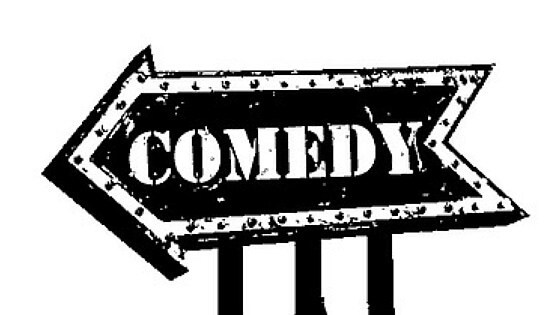How to Perform Stand-Up Comedy
This How to Be a Comedian Blog summarize the free stand-up comedy guide available on this site. Sign up for our newsletter to get the entire unabridged copy of Comedian Quick-Start Guide in a downloadable PDF.
This article is going to introduce you to how to perform stand-up comedy. Making the leap from writing to performing comedy is the first real “leap of faith” that someone educating themselves on how to be a comedian must make. This article will help that leap go smoothly. Specifically, we’ll cover the “pre-show” preparations new comedians should make before they hit the stage their first time.
How to Be a Comedian: Preparing For Your First Comedy Performances
Ok, so you’ve written some material and you’re ready to try it out on stage. Now we need to prepare for your upcoming show.
First things first, make sure you rehearse. Say all of your lines out loud (you should do this while you’re writing as well to make sure your sentences sound natural when you say them, not just look good on paper). This practice session is absolutely essential when you’re just learning how to be a comedian. Once you’ve developed your stage comfort, rehearsal will be less necessary.
Rehearsing Essentials For How to Be a Comedian
Here is what’s important in rehearsing…
First, DO NOT TRY TO MEMORIZE EVERY SINGLE WORD! This almost guarantees that you will be on stage and not know what you’re going to say. Why? If you simply memorize the words they’ll be little more than a string of words to you with no real meaning. What’s easier to remember? A string of 500 individual words told in the correct order with voice inflection, pauses, and expressions or the story about your vacation? Instead, work on memorizing the IDEAS that you want to talk about. Not individual words. If you know the idea of what you want to say, the words will come to you. Stage comfort doesn’t come from over-preparing. It comes from relaxing and allowing yourself to tell the story the way YOU want to tell it. Whether you’re just learning how to be a comedian or you’ve been performing for a long time, the principle is the same.
How do you think comedians can perform for 45 straight minutes? It’s certainly NOT by memorizing 20,000 words and the correct sequence to put them in (in addition to all their gestures, voice inflections, etc.). In fact, many comedians (Eddie Izzard is a great example) don’t even write their material down. They understand the main point they want to get across and then they simply tell it. If veteran comedians can’t even do it, what benefit would you get when you’re still learning how to be a comedian?
Second, time yourself while you’re rehearsing. You should know how much time you’re going to be doing before hand, so use your rehearsing to make sure that you won’t blow right past your time allotment (called “running the light”). Running the light is a great way to get on a booker’s bad side, especially if he has 20 other comedians scheduled to perform after you. When you’re just starting out learning how to be a comedian you’re going to get some slack if you make a mistake here, but always be conscious of the light.
Third, create a set list. A set list is a small piece of paper you place in your pocket so that you can pull it out at any time and remember what you wanted to talk about next. This takes a lot of the “what if I forget” stress out of your performance and makes it much less likely that you’ll ever forget in the first place. Often times, just having a set list allows you to relax enough to where you can remember what you wanted to talk about without checking it. It’s quite ironic. The fact that you have it often is the very reason why you don’t need to look at it. Just like the last two principles, new comedians and veteran comedians behave quite differently. A veteran comedian won’t always have a set list (usually because they’ve performed the same material so many times that they have it down by heart). When you’re just learning how to be a comedian you’ll definitely want to carry a set with you. You simply haven’t practiced the material enough times and developed enough stage comfort to go without one (of course, there will be exceptions to every rule)
Lastly, rehearse OUT LOUD. This is not optional, memorizing silently to yourself uses a completely different part of the brain than you will be using to say the words during your performance. You want to practice those words in a scenario that is as close as possible to the actual performance.
Steps To Rehearsing A Comedy Performance

Second, write out a finalized version of your set. But remember, this can change. The more you think about your material the more you will find better setups, punch lines, and additional jokes that you didn’t think of earlier. Your set is never written in stone. If you think of something better than what you currently have, switch it out and re-time yourself. Depending on your stage comfort, you can even do this WHILE you’re currently on stage.
Third, break everything down into pauses. If you have a paragraph written, determine where the pauses are for when you speak and hit “enter” so that you wind up with something like this…
| S- Setup Line (slight pause)
S- Setup Line (slight pause) S- Setup Line (slight pause) P- Punch Line |
This is both far easier to memorize (as it’s broken down into chunks that your brain will be able to recall much easier) and help you practice your pauses until they are natural. Again, look at how you speak in everyday life. You don’t rattle off an entire paragraph in one long breath. You take subtle pauses throughout. Some pauses are ½ second, others a full second… some much longer. Break your sentences down so that you can practice your set (including pauses) by reading your material line by line. “Parsing” your comedy material is one of many performing skills you’ll want to master when learning how to be a comedian.
Your fourth step will be to develop your set list. Here’s an awesome article on how to create the perfect comedy set list so you’ll never forget what you want to say on stage).
Now that you know exactly what you want to say you can write “primers” down for yourself. A primer is a word or small group of words that will remind you of the entire idea. So instead of writing an entire joke on your set list that will be difficult (not to mention awkward) to read one stage you can just glance down, see “Target” on your set list, and instantly remember “oh yeah, I wanted to talk about shopping at Target.”
The last step is to begin using your set list instead of reading your notes to practice out loud. Knowing how to start a joke using your set list is much more important than memorizing your full set for two reasons…
First, you won’t have your laptop on stage, but you WILL have your set list. The more comfortable you are using your set list to start a joke the more comfortable you will be on stage because you’ll know that, no matter what happens, you can pull out your set list and be back on track.
Second, it removes a crutch. As we said earlier, the closer your rehearsing gets to the actual experience of being on stage the better. By stripping your entire set down to a handful of words you’re taking an important step in being able to remember your set on stage. You want to go from “I can rehearse my set by reading it out loud” to “I can rehearse my set by reading a few words on a set list” to “I can rehearse my set without any help.” Once you can remember what you want to say without relying too heavily on reading your notes, you’re reading for your performance. Use these steps to take control of your learning process and you’ll learn how to be a comedian much quicker.
Jared Volle
CreativeStandUp.com

